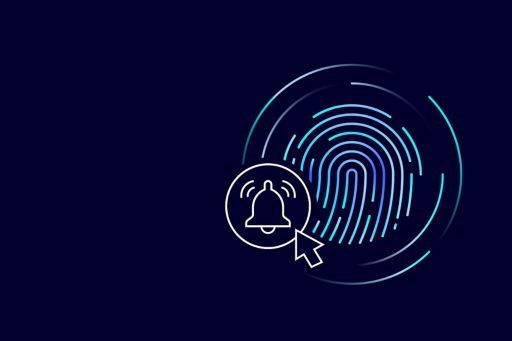In this third edition of Me, My Life, My Wallet we’ve gone further into our exploration of today’s multidimensional customer’s behaviour. Our latest research was conducted over two time periods in 2020, before COVID-19 and during the pandemic. It explores key themes of critical importance to organisations and individuals around the world relating to their time, trust and technology interaction.
We observed several behavioural changes which we believe have the potential to endure well beyond the receding of the virus and into the eventual arrival of a new post-COVID-19 reality. These include consumers moving to support local businesses, as well as a focus on consumer trust and embracing technology acceleration.
The pandemic has seen accelerated use of digital channels across customers of all ages to stay connected and make their daily routines more efficient. To keep up with the changing customer, companies will need to accelerate, augment and promote their customer interaction investments while maintaining their risk mitigation strategies, specifically around customer data and privacy.
Increases in data breaches, loss of credit card data and the need for this now to be transparently reported has led to some brands facing a trust crisis. As digital transactions continue to increase and brands become custodians of more and more customer data, trust in the custodians of that data will be key.
Consumer trust is key
Although at varying levels, consumer trust in most industries appears to have increased since the pandemic. Healthcare, retail and technology were the highest ranked industries for trust both before and during the pandemic period, although our research shows the greatest increase in trust has been seen in government. Those who had a high level or complete trust in the government rose from 27 percent to 47 percent. In Australia, trust has been highest in healthcare, those with a high level of trust in the industry rising to 63 percent from 50 percent before the arrival of COVID-19.
The technology industry ranked in the top three most trusted industries (with 48 percent of customers indicating they have a high level of trust in the technology industry before COVID-19 and 49 percent during). The technology industry has the capability to engender trust when it enables a frictionless, contextual and personalised experience – and Australians attach value to personalisation in particular, when executed efficiently.
However, while trust in technology increased, so did concerns about the rise of cyber theft. In our research we discovered 87 percent were worried about cybertheft after the arrival of COVID-19 and those worried to a great extent/quite a bit is up from 50 percent to 56 percent. There was also an increase to 57 percent, from 53 percent, in expectation that personal information and data would be protected and not sold to others. We found that 83 percent of respondents expected a company to protect their data and make transactions and purchases as easy as possible.
Since the outbreak of the pandemic, there has been an increase in the critical driver of customer trust in most sectors. In Australia, consumer comfort with technology has increased across the board, and more are now interested in new technology.
of customers said they would pay more to an ethical retailer
of customers expect a company to protect their data and make transactions and purchases as easy as possible
of customers say that an organisation’s environmental or social record has changed their purchasing decision
(up from 45% pre-COVID-19)
Brand purpose and supporting the vulnerable
Brand purpose and connection to the communities and stakeholders with which it interacts has increased in importance to customers when considering a brand. Many customers are looking to support local- and community-minded brands, following a focus on supporting local after the bushfires in early 2020, and the impacts of COVID-19 on many small businesses later in the year.
Supporting the more vulnerable is a key theme moving forward. When asked about their financial situation, respondents’ concerns about future finances rose from 39 percent before the pandemic hit Australia to 47 percent afterwards. We have seen increasing numbers of customers concentrating on their future finances and purchasing products only as required and an increasing number concerned about meeting their financial obligations.
The value of transparency
The high levels of trust in healthcare throughout COVID-19 were mirrored in our Australian Customer Experience Excellence Report 2020. The research found that in the Australian public sector, reliable and timely information helps to set expectations and ultimately serve as a guide through unprecedented times. For example, many New South Wales residents relied on NSW Health as an important source of truth through the pandemic. Users reflected positively on the government department’s timely and transparent COVID-19 updates, which served to ease concerns and set expectations about what was coming.
Overall, the shocks and continuing uncertainty of 2020 have left Australians consumers feeling a strong need to trust companies they purchase from, as well as a desire to support businesses in their area. They have built new habits through online channels, but are also determined not to lose their local loyalty. Organisations looking to tap into these new consumer habits should prioritise reassuring customers that their data is safe with them, while investing in immersive and frictionless digital experiences.
Although constrained during restrictions, we have seen attention shift back to basics and buying local. In August 2020, 54 percent of customers we asked in Australia said that an organisation's environmental or social record had changed their purchasing decision.
focused more on health and wellbeing during COVID-19 than they would normally
shopped online more than they would usually during COVID-19
of people are prioritising future finances over current finances post-COVID-19 (up from 39% in pre-COVID-19)
Uncover more insights related to Customer Centricity by subscribing to our email updates.
Be notified of thought leadership and insights on customer trends and values, analysis on the ‘customer first’ agenda and receive invites to upcoming events.





